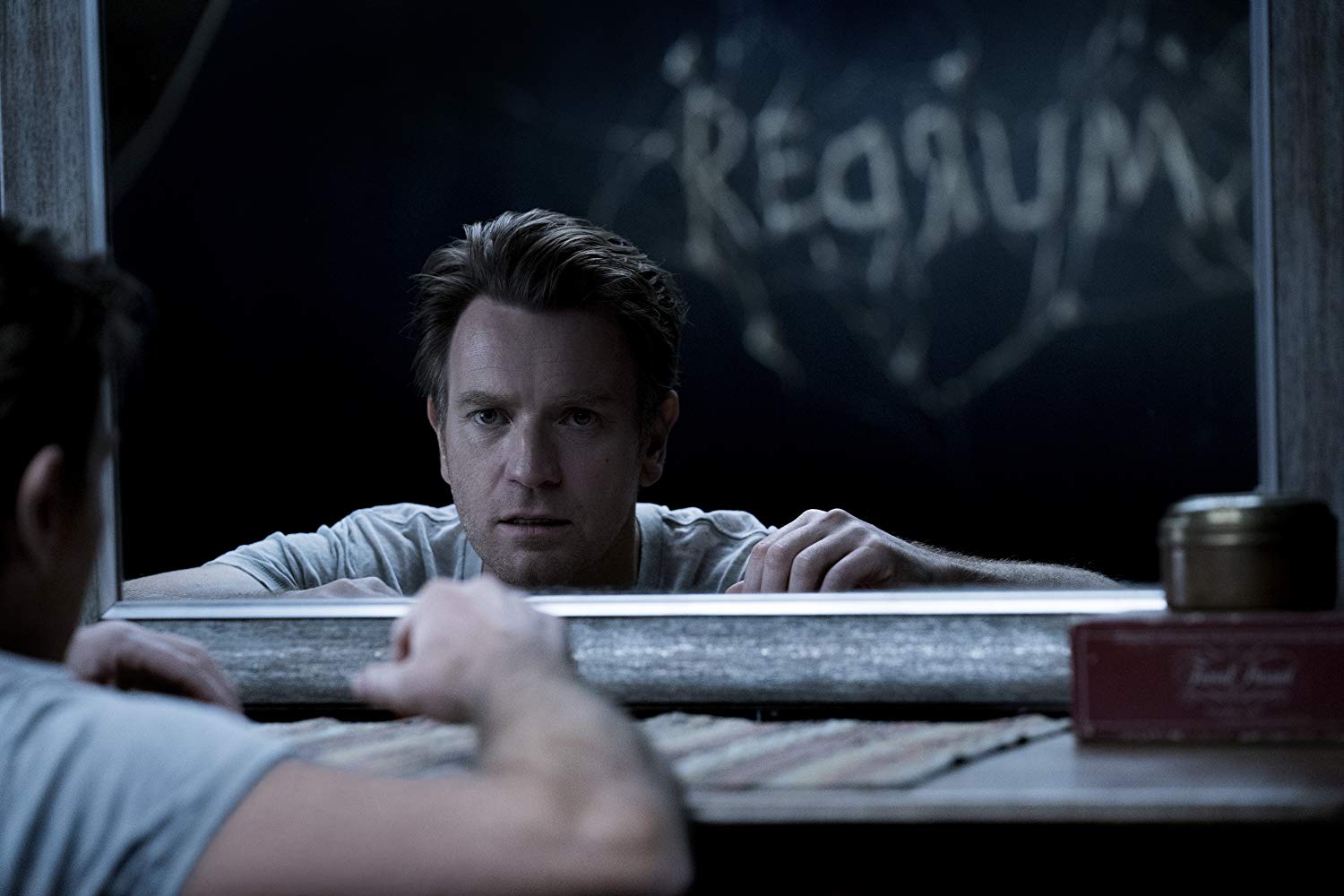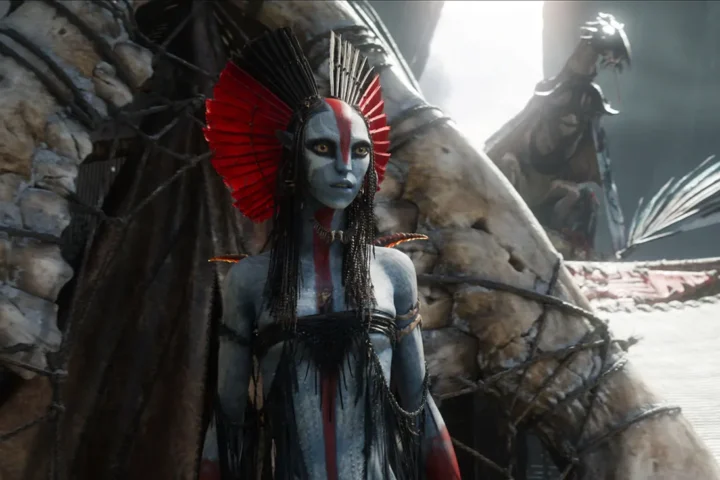I suppose those longing for nostalgia might take a shine, if you’ll pardon the pun, to Doctor Sleep, the new movie sequel to The Shining, which spins a triptych of tales that converge in an expected, and unsatisfying, fan service climax. But for most, I suspect, as Stephen King adaptations go, they’ll find it somewhere in the middle – not awful, not good, at times passably diverting but overlong and lacking in genuine thrills.
Directed by Mike Flanagan (Gerald’s Game) from his adaptation of King’s novel, it’s a step down from its predecessor in nearly every regard. But then, most movies would be, wouldn’t they? Kubrick’s 1980 masterwork, a diabolical epic of cool, mounting dread and madness born of isolation (with a little help from the supernatural), nearly 40 years on is regarded amongst the chilliest, most disturbing of horror films—with a denouement so ferocious, and so austere, it demanded high art cred.
King notoriously bemoaned Kubrick’s detached, almost clinical behemoth, scripting an alternate, lesser-than 1997 miniseries remake helmed by director Mick Garris and intended definitive; instead, it was quickly forgotten. His 2013 follow-up novel Doctor Sleep was undoubtedly intended as the final word on the subject. It deserved a better movie.
The bloated picture spins the present-day tale of a battle against an all-corrupting evil, this time focusing on adult Dan Torrance (Ewan McGregor), nursing the psychic wounds of childhood with the bottle en route to doing battle with a new crew of heinous demons.
Childhood flashbacks gives us a young Danny (Roger Dale Floyd), raised by mom Wendy (Alexandra Essoe) post-Overlook, yet still hanging with the spirits. And while childhood “friend” Tony is nowhere to be found, the ghost of trusty Overlook cook Dick Halloran (Carl Lumbly) appears, offering the boy tips to ward off increasingly encroaching visions.
Adult Dan is adrift in bar brawls, booze, anonymous sex and petty thievery, ultimately finding his way into a support group where he befriends sponsor Billy (Cliff Curtis, typically fine), gets a new apartment, a job as a hospice orderly and a shot at clean, quiet living, quickly proven futile by a pair of unwanted new developments.
The first is a vicious, vampiric cabal of drifters known as True Knot, led by one Rose the Hat (a stunning Rebecca Ferguson), and sort of a motley band of roving RV hippies who when not indoctrinating nubile teens like Snakebite Andi (Emily Alyn Lind), are kidnapping and murdering children. Why, you ask? Because the children they target all “shine,” and upon expiration this power can be bottled into an all-powerful agent and later consumed as a sort of intoxicating super-shining, or something like that.
Dan’s second disruption comes from young Abra (Kyliegh Curran), who also has the gift and has been marked as a True Knot target, and whom Rose can telepathically GPS (or something like that). Abra’s shine is so powerful that Rose seeks to consume her, however unprepared she is for the girl’s powers, evidenced by a terrific scene in a grocery store where Rose experiences the full force of Abra’s talents.
Eventually (and it takes a long time) Dan and Abra team up, Rose and gang in hot pursuit. And where might you suppose this showdown leads? You guessed it.
The final half hour brings us to the picture’s real raison d’être, a return to the Overlook complete with strains Wendy Carlos’ classic score and the resurrection of each classic demonic nutcase from The Shining – caretaker Grady, the butchered Grady twins, a not-so-clever variation on faithful bartender Lloyd and of course, the woman in room 237, who appears in the beginning of the film and at least a half-dozen times throughout until she wears out both her menace and welcome.
Where there should be great fulfillment in the reimagining and mounting of such a revered movie locale, the physical construction of the hotel and how it’s used here is a rank disappointment (we barely even see its imposing façade), the Overlook is treated as a standard-issue haunted house of horrors minus any of its emblematic, conspiratorially imposing evil. The wallpaper, carpet, hallways and rooms appear to have been faithfully recreated, but all of the art direction in the world can’t replicate the terror of its original visage, possessed by lulling, maniacal sense of inescapable fate, rendered in seductively engrossing, then enveloping, tracking shots. The same is true of Doctor Sleep’s climactic hedge maze chase, aping Kubrick’s setup minus his artistry, turns the monumentally foreboding puzzle into a merely ho-hum set.
Yet for its faults, the picture is nearly worth seeing for the sensationally cunning Ferguson as its pitch black villainess, a performance of extravagant theatricality and act of domination over the dreary movie around her, wiping everyone else off the screen (as she does so often in just about everything, from Mission Impossible: Rogue Nation to The Girl on the Train to The Greatest Showman). Her Rose the Hat is an instant, indelible movie villain so engaging, and played by the star with such wicked, methodical relish that you wish the entire film was hers.
It’s worth mentioning that Flanagan has also made a bizarre decision to direct a trio actors to imitate Jack Nicholson, Shelley Duvall and Scatman Crothers, required to mimic the voices and mannerisms of their iconic predecessors. Some in the preview audience were positively, audibly ticked; I found it trite.
Doctor Sleep isn’t a total washout given Ferguson’s chops, a few well-mounted set pieces and capable tech credits, but this self-serious, patience-testing picture goes slack long before its climax, and then attempts to mine unearned sentiment from the original movie.
2 stars.



